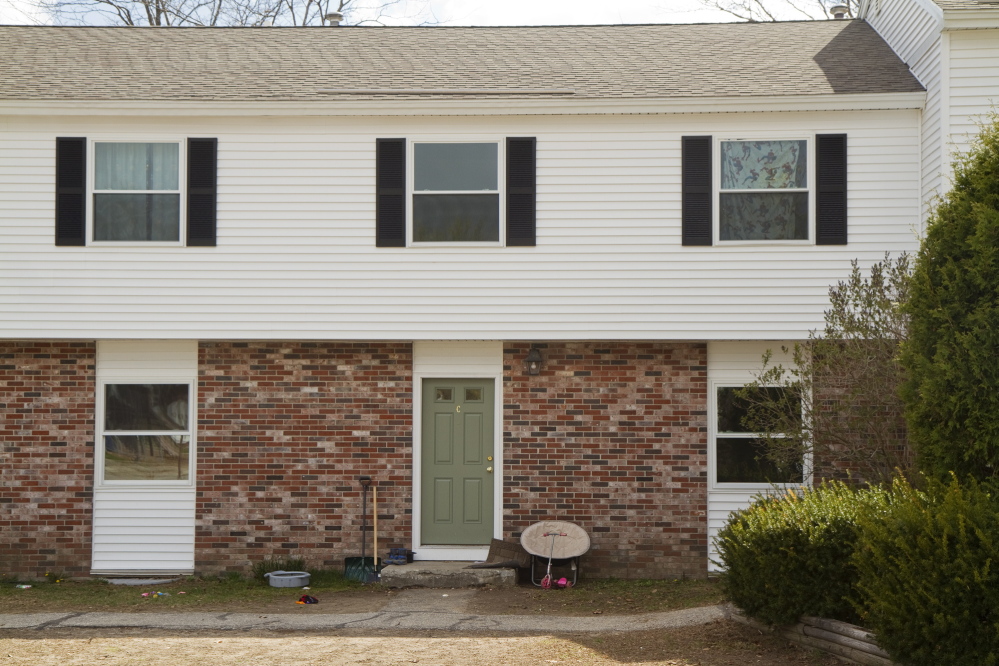A Sanford man is scheduled to appear in court Wednesday to face charges that he assaulted his infant twins, sending both to the hospital, one in critical condition.
Anthony Carpinelli, 21, of 25-C Bates St., who allegedly hit and shook his 2-month-old infants while taking care of them overnight last week, was charged with felony assault Monday.
Willow and Haiden Carpinelli, who were born premature on March 11, were released Tuesday from the Barbara Bush Children’s Hospital at Maine Medical Center in Portland.
Willow had a serious head injury from a blow and was initially in critical condition, said Sanford Detective Cpl. Sarah Roberts. She was listed in serious condition Tuesday, but a hospital spokeswoman said late in the day that she had been discharged to her family.
Haiden had internal injuries consistent with violent shaking, Roberts said. He was initially in serious condition but also recovered enough to be discharged, the spokeswoman said.
Carpinelli was with the children Thursday night while their mother was out, Roberts said. Nichole Morrill returned Friday morning and found the children in distress. At noon, she took them to Southern Maine Health Care’s emergency department in Biddeford.
Roberts would not say where Morrill had been overnight.
The hospital notified the state Department of Health and Human Services’ child protection division, which alerted Sanford police. The infants eventually were transferred to the hospital in Portland.
Anthony Carpinelli was held without bail in the York County Jail and was scheduled to make an initial appearance via video in Springvale District Court on Wednesday. Authorities decided to hold him without bail because of the seriousness of the charges and because the crimes allegedly were committed against family members, Roberts said.
The babies are small for their age, Roberts said, and injuries at such a young age can have lifelong consequences.
Carpinelli and Morrill lived with the twins and a 2-year-old daughter in a single room at Morrill’s brother’s home. The 2-year-old was not injured, Roberts said.
John Martins, a spokesman for the DHHS, said he could not yet say whether Carpinelli has any history of abuse in the department’s records, and would not know until Wednesday whether there was information he could release.
Carpinelli lived and went to school in Indiana and New Hampshire, according to his Facebook page. He has no criminal record in Maine, according to the State Bureau of Identification.
Police do not think that drugs or alcohol were involved. They said there were no witnesses.
Each year, Maine hospitals admit 75 to 100 young children who health care workers suspect have been abused, said Dr. Lawrence Ricci, a forensic pediatrician who is an expert on shaken baby syndrome. About 20 percent turn out not to have been abused, he said.
“Our sense over the past years is those numbers are on the increase,” Ricci said, in part because health care professionals are more sensitive to possible signs of abuse.
But there are more disturbing trends. “Over the past year we’ve seen more cases we think are abusive head trauma,” he said.
In a state with a population the size of Maine’s, Ricci said, he would expect to see five or six babies a year with abusive head trauma. “We’re easily seeing twice this number,” he said.
Statistics from the DHHS show that the number of children younger than 5 who were identified as physically abused rose from 241 in 2011, to 359 in 2012, to 424 last year.
Child safety advocates have worked to educate parents about ways to avoid infant abuse, which often happens as parents deal with crying babies. A video called “The Period of Purple Crying” – available at purplecrying.info – seeks to have parents recognize when a child’s intense crying has worn down their patience, creating the possibility of abuse.
Ricci said he is not familiar with statistics indicating whether twins are any more likely to be victims of abuse. However, when one twin is injured and abuse is suspected, it’s recommended that both siblings go to the hospital because of the increased likelihood of abuse of the other child, he said.
Factors including financial stress, substance abuse, domestic violence, a parent who was abused as a child, poor impulse control, anger issues and a large number of children in the home increase the likelihood of abuse, Ricci said, but the vast majority of families navigate those risks without resorting to abuse.
David Hench can be contacted at 791-6327 or at:
Twitter: @Mainehenchman
Send questions/comments to the editors.




Comments are no longer available on this story